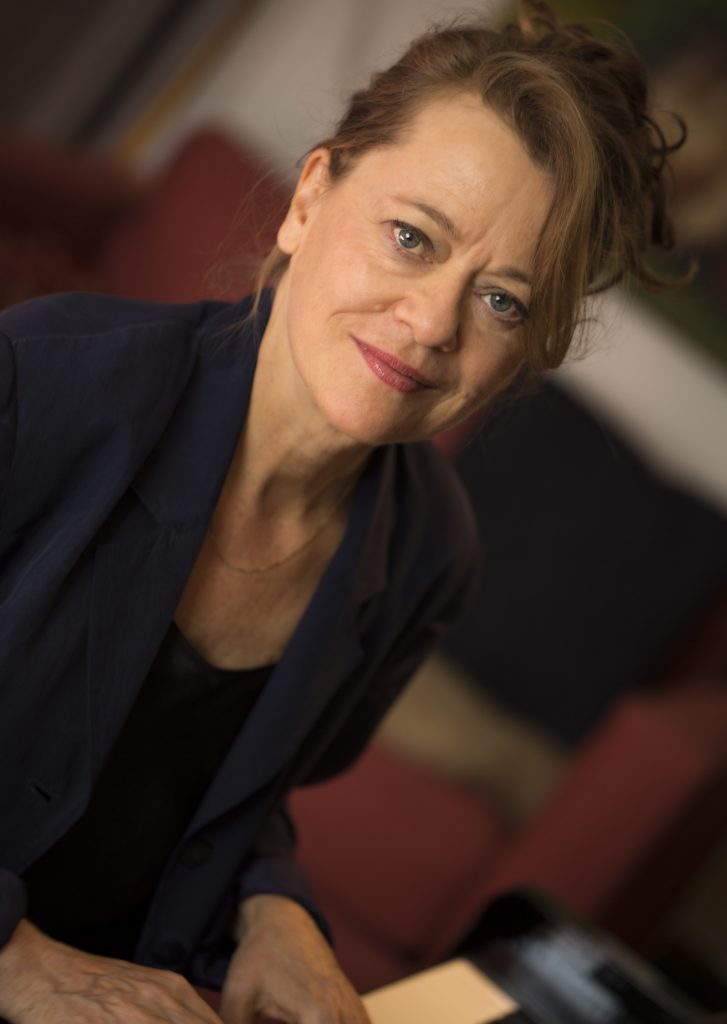Lisa Moore brings empathy and grace to Janaček’s solo piano works

Lisa Moore performed Leos Janaček’s entire solo piano repertoire Friday night at Bargemusic. Photo: Yumiko Izu
Before she sat down at Bargemusic Friday night to play all of Leos Janaček’s solo piano compositions, Lisa Moore told the audience that the composer “wasn’t romantic, he wasn’t modern, he was just Janaček.”
Maybe that’s why so few pianists have tackled this wonderful literature — Janaček is singular and so demands thinking that can’t readily be adapted from knowledge of the standard piano repertory. And as the complete work amounts to just a bit over an hour of music, perhaps the thought is that it’s just not worth the investment of time.
Fortunately, there is Lisa Moore. She has clearly invested the time, thought, and energy — she has recorded the music for the Tall Poppies label in Australia — and so delivered a tribute to the 90th anniversary of Janaček’s death that was marvelous in every way.
Moore showed in her opening remarks and her playing that she understood Janaček’s unusual idiom, the key that unlocks everything about the composer. He transcribed both Czech folk songs and the rhythms he heard in speech, and that and his love of the Czech language informs all his music, not just his operas and songs.
Janaček used the shape and rhythms of speech to extend his melodies — including the extraordinarily beautiful ones that open his sonata “1. X. 1905” and In The Mist — as well as his baselines, or to make antiphonal structures. As Moore pointed out, many hear these bits of language, which often jangle or agitate a smooth line, as interruptions in the form. Rather, they are essentially vocalizations of the music.
In practice, this meant the bass line in “Our Evenings” from On an Overgrown Path Book I, sounded so free and independent from the right hand that it seemed the music sought to wander off the page. In all the music, in every measure, her phrasing was full of beauty and meaning, a feeling of love for and fascination with the music — her playing of the alternating melody and chords in the right hand of the Allegretto (Presto) in Book II was seamless in a way one had not previously heard.
This way with phrasing, and Moore’s appreciation for Janaček’s aesthetic, made for a long, flowing line in all the music. And in contrast to the delicacy and reserve of Rudolf Firkusny, the great Janaček interpreter, Moore played with an urgency that produced a palpable poignancy. She was deeply sympathetic not only to the technique and formal sound of his music, but also the rich, haunting, humane expression.
The programming set the pieces in order of conception, meaning that Book I of On an Overgrown Path was first because Janaček started it first, even though it took most of a decade to complete, and some of the works that came later in Friday’s program had premiered much earlier.
These pieces, and his two String Quartets, seem the most private of all his works, closest to both his worst experiences — the deaths of his children, the humiliating obsessions with much younger women, and also his seeming capacity for an almost child-like joy. If the modern Janaček is heard in his use of language, this is the romantic Janaček, the composer whose “Unutterable Anguish” in Book I of On an Overgrown Path is often disarmingly quiet and peaceful.
This quality is packed into the sonata “1. X. 1905,” a response to the tragic death of a worker during a demonstration for the use of Czech (as opposed to German) in the universities. The first movement is subtitled “The Presentiment,” and initially expresses a haunting foreboding that grows in agitation, then immediately switches to pastoral charm. Moore’s balance between these feelings, and the dialogue between her two hands, was gripping.
For an encore, Moore played “Bird as prophet,” from Schumann’s Waldszenen. She stated that she thought it was a good fit. Indeed, Schumann is the composer with whom Janaček’s music has the closest affinity. They both made everything sound like some kind of fantasy, a rumination on inner feelings and thoughts formed by stream of consciousness.
The Bargemusic Masterworks Series continues April 28 with pianist Francine Kay playing Chopin, Debussy and more. bargemusic.org.






